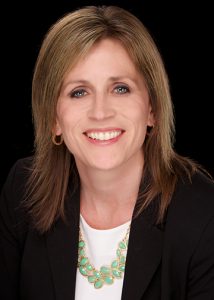Is an AMC the Right Solution for You?

The ABCs of AMCs are not so simple anymore
Like life in general, today’s trade associations and professional societies have become increasingly complex. Membership models, demographics, communication channels, risk compliance, benefits administration and group purchasing are evolving at lightning speed. They require a lot more expertise and manpower than they used to. With tremendous pressure to hold dues in check, it can be hard for any size association to find the in-house resources needed (including volunteers) to handle all the specialized skills required to keep the modern not-for-profit humming along.

Christie Pruyn, CAE, CIS, Executive Director of the Chicago area chapter of Meeting Professionals International, said “it’s absolutely amazing what you can do with dedicated volunteers,” but even she admits it’s not just about assigning them to tasks. You have to invest a lot of time and effort getting to know them, finding out what their goals are, what makes them tick and what kinds of recognition they need. You also have to make sure that highly enthusiastic volunteers stay aligned with goals and “don’t veer off the road,” she added. See today’s Corner Office profile for more insights from Pruyn.
Wendy Weiser, head of Schaumberg, Illinois-based WJ Weiser & Associates said associations are increasingly realizing the value of hiring professional management companies to run the day-to-day operations of their organizations. “When you consider the time and cost of hiring and training a staff, as well as the overhead involved with maintaining office space, it is vastly more economical and efficient to utilize the services of professional managers with the knowledge, technology and resources already in place,” said Weiser.
![]()
Hiring an association management company? Be crystal clear and upfront about your objectives and expectations.
AMCs can provide a vast array of services and expertise to associations under many types of fee models.
Culture fit is just as important as competencies when searching for the right AMC.
What exactly is an Association Management Company (AMC)?

ASAE President & CEO, John Graham is famous for saying, “If you’ve seen one association, you’ve seen one association,” meaning that no two are the same. And the same goes for AMCs that have been serving associations since 1890. Estimates from the AMC Institute, ASAE and others vary, but there are believed to be anywhere from 500 to 800 AMCs ranging from sole practitioners to 500-staff organizations. At the 30,000-foot level, an AMC is a professional service company that provides management and administrative services to associations on a fee-for-service basis. That could include staff, office support, office space, tech support, equipment and group buying buyer. But that’s just the beginning, as we’ll discuss shortly.
As Caroline Dumas explains in today’s issue, there are two primary ways that associations work with AMCs: full-service and outsourced service models. Within a full-service model, the management company handles operations, including membership, marketing, policy development, legal and risk management. It could also oversee staffing, office space, equipment, contracts, technologies and member services on behalf of the association. Within the outsourced service model, an AMC delivers specialized support such as trade show and event management, financial management, sales of advertising and sponsorship, or even fine-tuning Web communications and social media.
Misconceptions about AMCs
According to Dave Wenhold, CAE, PLC, head of Kautter Wenhold Management Group in Altamonte Springs, Florida, “Many associations forget that AMC’s handle multiple clients and they often feel that they have a captive staff on hand. Clients that are new to the AMC experience should take some time to get used to the shared resources model.”
Pruyn said a big myth is that the AMC manages the direction of the association rather than the association’s executives. I worked for an AMC before. I can tell you the AMC always wants to make the association the strongest it could be, but boards sometimes feel there’s an ulterior motive. “That’s a misconception,” added Pruyn who has had executive experience on both the AMC and the client/association side.
Finding the find the right AMC
“I think it is a hit or miss model right now for new searches,” observed Wenhold. “We get many new clients from referrals because of the industries we represent, but oftentimes associations cast a wide net and sometimes come away with a bad fit.” Josh Patrick, founder of Stage2Planning Partners and former education director for the National Vending Association, said associations should be very clear about what you want out of the AMC. “If you’re not clear, you’re going to get what the management company thinks is important, not what you think is important.” Wenhold said he has heard of cases in which an AMC on the “short list” got passed over because it came across as too “salesy or too slick.”
 As Weiser wrote for us earlier this month, there are 7 Key Questions to Ask when considering an AMC, including what its management style is. “Your staff will work closely with someone from an AMC. Your AMC will also represent your association to the degree that unless someone asks, they won’t know an AMC employee is not a native member of your association’s staff. Ask the AMC what’s its communication style is like. Can it adapt to your staff’s preferences? What is the AMC’s standard turnaround time for calls, emails or work delivered?” The beginning of your working relationship—not the first sign of trouble—is when to make your expectations known. When meeting with a potential management company, Patrick advised “treat the process as though you’re hiring a full-time employee.” They’re doing due diligence on you, and you should do the same with them, he added.
As Weiser wrote for us earlier this month, there are 7 Key Questions to Ask when considering an AMC, including what its management style is. “Your staff will work closely with someone from an AMC. Your AMC will also represent your association to the degree that unless someone asks, they won’t know an AMC employee is not a native member of your association’s staff. Ask the AMC what’s its communication style is like. Can it adapt to your staff’s preferences? What is the AMC’s standard turnaround time for calls, emails or work delivered?” The beginning of your working relationship—not the first sign of trouble—is when to make your expectations known. When meeting with a potential management company, Patrick advised “treat the process as though you’re hiring a full-time employee.” They’re doing due diligence on you, and you should do the same with them, he added.
Best operational areas for AMC help
According to early results of our unscientific reader poll, finance and accounting are areas in which AMCs are the most helpful to associations, with event management, membership management, advertising and sponsorship sales also getting votes. MPI Chicago’s Pruyn tends to agree. “We’re professionally managed by Meeting Expectations who handles things like accounting. That frees me up to focus on strategic operations, financials, membership, board management, sponsorship and fundraising.” Wenhold said membership growth and “determining ROI on the value of membership dues is the most pressing area of need.”
Commitment
According to Pruyn, The Meetings Expectations relationship with MPI-Chicago is very good. “Their president came to our golf event last year and stood behind the registration desk with us handing out badges and greeting people,” Pruyn said. “It’s important for leaders of the management company to go to the client’s annual conference, and show that there’s some sort of interaction. That’s a big part of the partnership as well.”
AMCs bring technology heft
Even small membership organizations are becoming too complex to manage via notebooks, paper forms, binders and spreadsheets. Most AMCs have IT specialists and the resources to bring you cutting-edge Information systems to help associations with strategic planning, budgeting, financial management, conferences and meetings registration, database maintenance, desktop publishing and general administration. Wenhold said AMCs are increasingly being asked to help associations with apps, surveys, AMS/CMS systems, audio visual equipment and tech tools for conventions.
How AMCs get paid
According to our experts, there are a wide variety of fee arrangement including:
- A fixed-fee management in which the scope of work is reviewed and the fee is fixed for either one year or throughout the contract,
- A mixed fee management fee in which there is a base management fee with an hourly fee component built into the management fee (typically the fixed fee is billed monthly and the hourly fee is calculated monthly and billed monthly),
- A fee based upon the revenues of the association (for example, the first $1MM in revenues is billed at 25 percent and anything above $1MM is then step-billed),
- A fee based upon net profit (for example, 50 percent of net profits are paid to the association management company).
“We are in business to make money by providing services,” noted Wenhold. “Associations call us looking to spend only $25,000 to $30,000 and we just have to say no. It can be twice as much work for the small guys because you really want to help them.” Wenhold advises associations to budget between 30 and 40percent [of revenue] for AMC services. Weiser recommends thinking toward the future wherever possible. “As your project’s size increases or winds down, you may need additional help or you may need to taper off the help needed. Ask your AMC if it can accommodate these changes, and if so, how much notice is required,” Weiser added.
Success stories
Wenhold said his company has had long-term relationships with several associations that finally passed “huge legislation” that will change the way they do business. “We were the constant for over a decade and continually helped them inch closer to victory. They love us for that. We also helped many associations that were stuck in the 1980s enter the digital age.” Wenhold said change is tough in the association world and it can be like trying to “turn the Titanic.” But, if you are smart and have realistic strategic plans, he said “you see the iceberg before you run into it. It is a question of vision and getting leaders down the leadership queue to buy into the long game.”
 Conclusion
Conclusion
As everyone becomes increasingly pressed for time, experts say associations can rely only so hard on their volunteers and boards to get things done the right way. While resourceful association leaders take pride in their multi-tasking, plate-spinning and juggling skills, energy and volunteer time are not infinite resources. Don’t be afraid to seek help. That’s not a sign of weakness; it’s a sign of smart management and a commitment to the future.
Hank Berkowitz is the moderator-in-chief of Association Adviser eNews.

